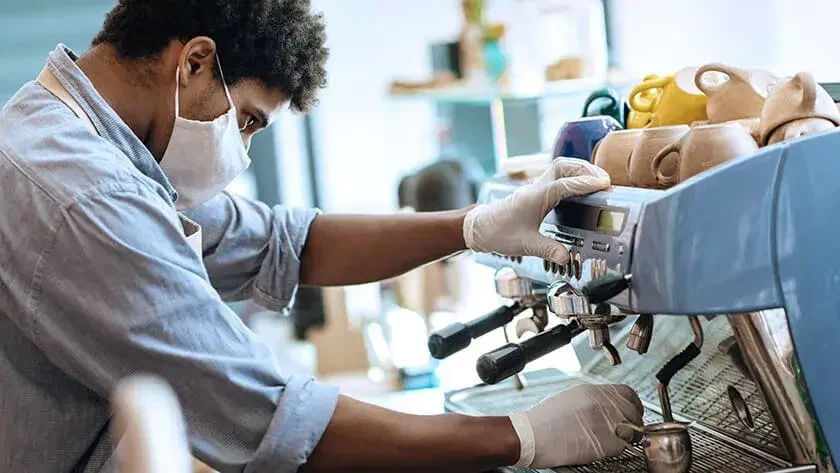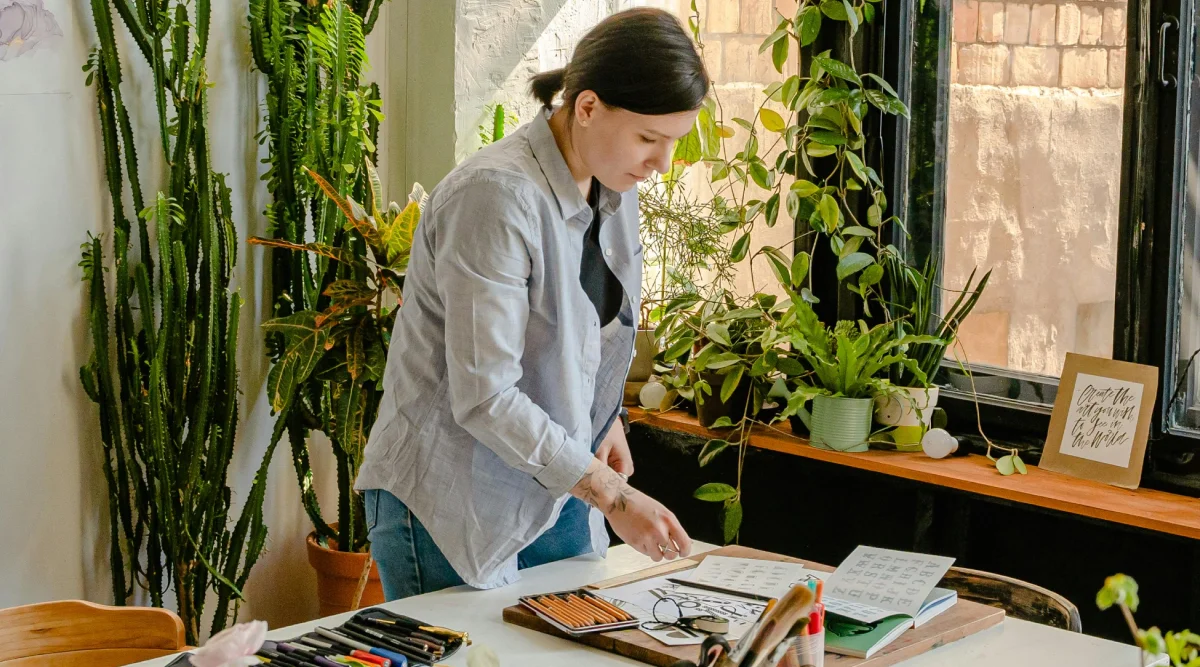Some small businesses have thrived during the pandemic by implementing drastic operational changes, while others got ahead simply by tweaking their business model or pushing tech adoption.
But for every business that came out ahead over the last year, many more have failed for various reasons. Some their own doing; others through no fault of their own as social distancing guidelines and government lockdowns all but sealed their fate.
A study of nearly 1,300 B2B firms published by Hinge in January found several common traits among those that increased revenue over 20% last year or were considered high-growth companies.
The drivers:
- Increased marketing spend and more frequent research on target audience.
- Implemented more mature automation strategies across business processes.
- Initiated successful digital marketing techniques.
- Generated nearly half their leads from digital sources.
“By marshaling more research, marketing techniques, and higher skill levels, they enjoyed faster growth and greater profits during a historic, uncertain year," says Lee Frederiksen, author of the report and managing partner of the Reston, Va. market research firm.

From virtual to real success
Host Events Inc. flatlined in March 2020 with no events or dollars in the bank. The Boston company, which launched an on-demand platform in 2018 connecting corporations with certified, insured bartenders, scrapped that model and shifted to producing virtual and social media experiences for business clients and their communities.
Since its first virtual event a year ago, the company has attracted more than 500 clients, including the likes of Google, Amazon, and KPMG. Classes begin at $300, running the gamut from whiskey tastings and cooking techniques to floral arrangements and drag queen bingo.
“The success of the Host Events coronavirus-related business pivot is due to its focus on three key areas: utilization of the resources and skills the company already had, creation of a service that is in demand, and finding a way to serve companies in need," says Senior Innovation Manager Christine Cousins.
Pathways New Age Books & Gifts, which closed for more than two months during the pandemic, dug deep to find new customers, launching Facebook Live video sessions for hours every day over three months, growing viewership by 20%. Sales rose nearly double digits, while the store created a new community in the process.
The St. Louis-based retailer sent customers direct messages, added extras in order bags, and created new products, including kits to boost virtual, social interactions.
“This has expanded so much that several of our customers are now virtual friends and look forward to meeting each other in person," says co-owner Melina Valdejo.
Addressing supply chain woes
More Marketing Firm, which provides digital marketing, social media content, and call center services for clients nationwide, just posted its best quarter, prompting the Atlanta startup to expand its sales team and call center support staff.
“As a result of the pandemic, shipping companies have seen unprecedented demand and they have struggled to keep up," says founder Ivory Coats. “This has resulted in more customer complaints for e-commerce store owners and the need to build out their support team sooner than they may have needed to prior to the pandemic."
The pandemic and temporary block of the Suez Canal, coupled with Chinese manufacturers halting production amid lockdowns, has depleted shipping containers worldwide, according to Teri Shern.
“Companies will have to try to come up with solutions to these issues before supply chains fall apart," says the founder of Conex Boxes, which sells and leases steel storage containers throughout the U.S.
Uphill climb
Industries that rely upon on-premise customers, such as hospitality, retail, and restaurants, have fared the worst amid the pandemic.
“The indoor climbing industry got hit hard because of the restrictions imposed on us," says Kristin Horowtiz, founder and chief executive of The Pad Climbing, which shuttered a location in Santa Maria, Calif. “We were closed fully for 10 of the past 14 months."
The company, which faced hefty loans and tax bills due to tenant improvements, is focusing efforts on its San Luis Obispo, Calif. gym and one in Henderson, Nev.
Horowitz believes her 20-year business will survive.
“We got a good amount of money from the SBA through the Emergency Loan program for my California location and while I've gotten only a pittance for my Nevada location, we had investment money we repurposed to keep that afloat," she says.
Right place, right time
Conversely, certain businesses catering to homebound, online customers have performed unseasonably well.
Pinch Spice Market in Louisville, Ky., started seeing online traffic and sales spikes amid the first lockdowns in late March last year.
“When more people started searching for fresh organic spices online, our website was there to greet them," says co-owner and President Meaghan Thomas, a former digital marketer. “Not only were people staying home and cooking more, but they were also getting more experimental with their cooking and buying rare spices and a lot more global blends."
Ganja Goddess, a cannabis products retailer and delivery with operations in Los Angeles and Seattle, has seen sales double as consumption has risen during the pandemic. Cannabis companies were also deemed essential businesses in California and Washington, among several other states.
“The pandemic in some ways saved the industry," says Zachary Pitts, founding partner, and chief executive. “Cultivators that were struggling were selling out before their harvest. Sales in delivery saw tremendous increases as everyone wanted a healthy alternative to drinking."
Other businesses, like AtmosAir Solutions in Fairfield, Conn., have greatly benefited as their role in reducing the spread of coronavirus has increased. Inquiries and new orders have surged during the pandemic, fueling a seven-fold revenue jump, with service in high demand from commercial real estate companies, hotels, universities, airports, cruise operators, and stadiums, among others.
“Indoor air quality, an afterthought for many before the pandemic, is now a priority," says vice president and Chief Technical Officer Tony Abate. "While coronavirus has hurt and closed so many businesses, the pandemic has been good for the indoor air purification industry."

